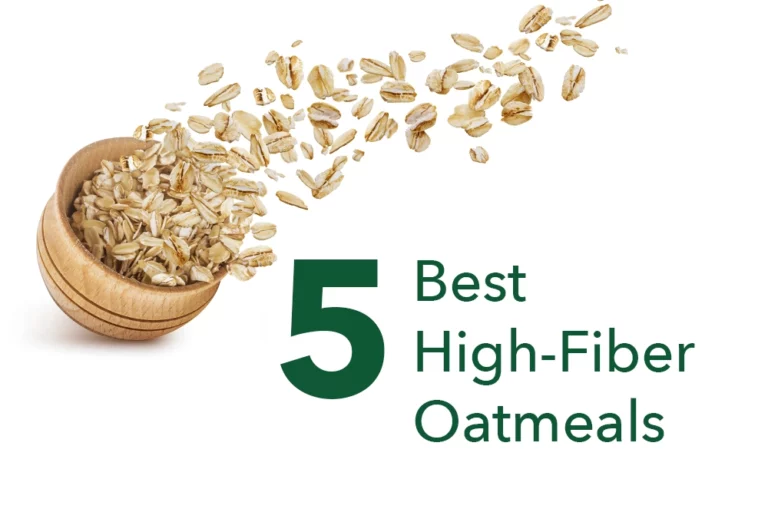What’s the Best Appetite Stimulant for Weight Gain?
Eating enough calories throughout the day to maintain your weight — let alone gain weight — can be difficult for people with a poor appetite.
A poor appetite can result from a medical condition, illness, advancing age, or psychological factors, such as depression or stress.
Appetite stimulant drugs are commonly prescribed to increase appetite and promote weight gain.
However, there are many types of appetite stimulants, each varying in their safety and effectiveness.
This article explains everything you need to know about appetite stimulants and whether there is a best appetite stimulant for weight gain.

What are appetite stimulants?
An appetite stimulant — medically known as an orexigenic — is a drug that increases appetite.
They work by influencing certain chemical messengers and activating receptors throughout the body that increase hunger as well as decrease inflammation, which when chronic, can decrease hunger (1).
These drugs are unavailable over-the-counter and must be prescribed by a doctor.
Other types of medications have the side effect of increasing appetite and many doctors will prescribe them off-label for this purpose.
There is little evidence to support dietary supplements for increasing appetite, but taking certain vitamins and minerals like iron, zinc, and thiamin can restore appetite in people deficient in them.
Many weight gain syrups contain these nutrients.
Is there a best appetite stimulant?
Unfortunately, there is no best appetite stimulant for weight gain.
This is because studies on appetite stimulants differ in sample size, patient demographics and characteristics, as well as appetite stimulant treatment, duration, and dose.
There are also few studies comparing the effectiveness of the different appetite stimulants commonly prescribed.
As such, your doctor will consider numerous factors related to your overall health, age, goals for care, and the potential risk for adverse side effects in determining what is the best appetite stimulant for you.
Still, it’s good to have a basic understanding of the current medications used to increase appetite and promote weight gain so you can be more involved in making informed-health decisions for yourself or a loved one.
Types of appetite stimulants
Here are the most commonly prescribed appetite stimulants and what the research says about their effectiveness for weight gain.
Megestrol acetate (Megace)
Megestrol acetate is a synthetic version of the human hormone progesterone.
It’s approved by the United States Food and Drug Administration (FDA) for the treatment of poor appetite, muscle wasting, and unexplained weight loss in patients with acquired immunodeficiency syndrome (AIDS).
Beyond patients with AIDS, it’s commonly prescribed for patients with advanced cancer to increase appetite and promote weight gain.
A review of 38 studies with more than 4,300 patients with cancer found an average weight gain of 5.5 pounds (2.5 kg) with megestrol acetate compared with other treatments (2).
However, this weight gain was not clinically significant, meaning it did not lead to full weight loss recovery.
Megestrol acetate has been shown ineffective in promoting meaningful weight gain in nursing home residents (3).
Megestrol acetate may cause edema or fluid retention, constipation, dry mouth, and abdominal pain (4).
Oxandrolone (Oxandrin)
Oxandrolone is an anabolic steroid that prevents muscle loss and increases muscle mass.
It’s approved by the FDA to promote weight gain after weight loss from chronic infections, extensive surgery, or severe trauma.
Oxandrolone has been shown to promote weight and muscle gain in patients with cancer, severe burns, chronic obstructive pulmonary disease (COPD), and children with cystic fibrosis (5, 6, 7).
What’s more, oxandrolone has been shown to result in similar amounts of weight gain compared with megestrol acetate in patients with HIV-related weight loss, but oxandrolone resulted in more weight gain in the form of muscle (8).
The main safety concern with oxandrolone is its potentially harmful effects on the liver (4).
Dronabinol (Marinol)
Dronabinol is a synthetic form of cannabis.
It’s prescribed to increase appetite in patients with AIDS-related weight loss and to treat nausea and vomiting caused by cancer treatment.
However, it hasn’t been shown to be very effective in promoting weight gain in patients with AIDS-related weight loss.
A review of seven studies showed that patients with AIDS who received dronabinol only gained an average of 0.22 pounds (0.1 kg), but patients who received a placebo lost an average of 0.88 pounds (0.4 kg) (9).
So while dronabinol may not be very effective for promoting weight gain in patients with AIDS, it may be useful for preventing unintentional weight loss.
One study showed dronabinol is less effective than megestrol acetate for increasing appetite and weight gain in patients with cancer and HIV (10).
Side effects associated with dronabinol include dizziness, nausea, drowsiness, and euphoria (4).
Mirtazapine (Remeron)
Mirtazapine is an antidepressant used primarily for the treatment of depression.
Although it’s unapproved by the FDA for increasing appetite and promoting weight gain, mirtazapine is commonly prescribed off-label for these purposes since they are common side effects.
In fact, one study suggested that mirtazapine was more likely to result in weight gain compared with 11 other commonly prescribed antidepressants (11).
In healthy men, mirtazapine has been shown to increase hunger, especially for sweets, possibly by increasing insulin (12).
This can be beneficial for promoting weight gain since sweets like candy, cookies, cakes, and other desserts are rich in calories and contain a mix of ingredients — namely sugar, fat, and sodium — that enhance consumption.
In one small study, women with depression who took mirtazapine for six weeks gained an average of 6.6 pounds (3 kg) whereas women without depression experienced no significant weight gain (13).
These results suggest that mirtazapine is more effective for increasing appetite and promoting weight gain in people with depression with no to little effect in people without depression.
Still, the appetite-stimulating properties of mirtazapine are less studied in people without depression since it’s only approved by the FDA to treat depression.
Common side effects of mirtazapine include dry mouth, constipation, drowsiness, and dizziness (4).
Cyproheptadine (Periactin)
Cyproheptadine is an antihistamine used to relieve allergy symptoms such as runny nose, watery eyes, sneezing, and itching.
Similar to mirtazapine, cyproheptadine is not approved by the FDA to increase appetite, but appetite stimulation and weight gain are common side effects and reasons for which cyproheptadine is prescribed.
A review of 46 studies showed that cyproheptadine increased appetite and promoted weight gain in children and adults who were underweight or had a chronic medical condition that caused weight loss, such as cancer, HIV, cystic fibrosis, or asthma (14).
Cyproheptadine is generally well-tolerated but has been associated with irritability, nausea, and dizziness (4).
Other ways to increase appetite and promote weight gain
Appetite stimulants have their place in promoting weight gain in certain people.
Still, they haven’t consistently been shown to be effective in promoting weight gain or preventing weight loss. They can also cause adverse side effects, most of which are mild to moderate.
As such, for most people, it’s best to try and increase appetite and calorie intake to promote weight gain in other ways.
Here are other ways to increase appetite and promote weight gain:
Drink your calories
Calories in liquid form rather than their whole-food form have less of an impact on fullness (15).
This means you can consume much more calories in liquid form rather than whole-food form before feeling full.
The more calories you can consistently consume, the more likely you are to gain weight, or at least prevent further weight loss.
High-calorie shakes and smoothies are a great choice and option for gaining weight since you can load them with calories and protein and they’re quick and easy to make.
Try one of these five healthy weight gain protein shakes and smoothies.
Try high-protein, high-calorie snacks
Snacking between meals is a great way to increase your calories and promote weight gain.
It’s always good to make sure that your snack consists of some protein, but low-protein desserts like ice cream, cupcakes, and other sweets are also great options.
Here are some high-calorie snacks for weight gain to give you some ideas.
Eat smaller, more frequent meals and snacks
Many people with a poor appetite experience early satiety, meaning you’re unable to eat a full meal or you feel very full after eating a small amount of food.
Consequently, early satiety can significantly decrease food intake, and therefore calories, and cause weight loss or make it difficult to maintain a healthy weight.
One way to promote food intake and increase calories to promote weight gain is by eating 5–6 smaller, more frequent meals rather than 3 standard meals.
Exercise
Although exercise tends to decrease appetite in most people, it can have the opposite effect on others (16, 17).
Exercise may increase your appetite to replenish the calories burned (18).
Exercise, especially weight lifting or resistance training, can also promote weight gain in the form of muscle mass rather than fat.
The bottom line
Appetite stimulant drugs — sometimes referred to as weight gain pills — are intended to increase appetite and promote weight gain in people who are unable to eat enough calories to maintain a healthy weight.
The most commonly prescribed appetite stimulants are megestrol acetate (Megace), oxandrolone (Oxandrin), dronabinol (Marinol), mirtazapine (Remeron), and cyproheptadine (Periactin), each varying in effectiveness and safety.
There is no single best appetite stimulant for weight gain as the best one for you will depend on various factors related to your overall health, age, goals for care, and potential for adverse side effects.
Beyond appetite stimulants, drinking more of your calories, eating high-calorie snacks between meals, eating smaller more frequent meals, and exercising are other ways to increase appetite and promote weight gain.






